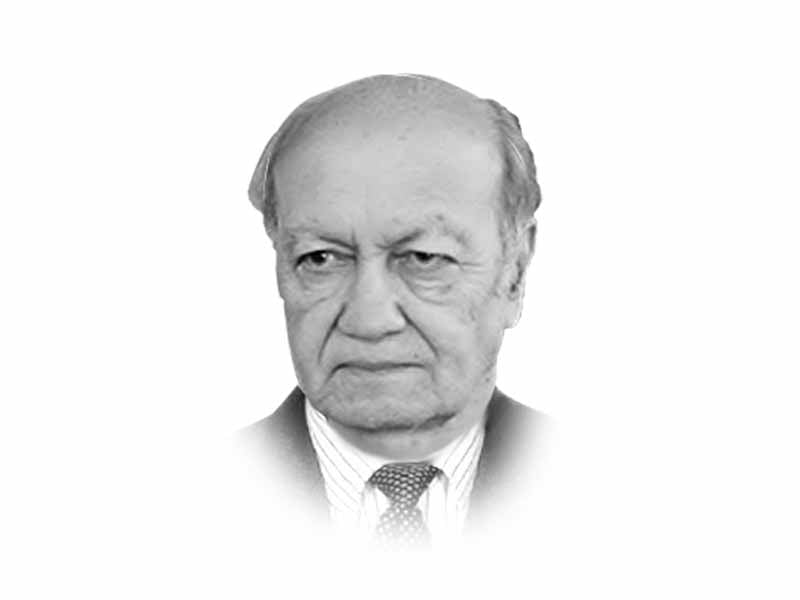
The question that is on the mind of many is: will the present coalition government, with PML-N being supported by PPP and four other small parties, hold and be able to steer the country through the multiple crisis that it faces? It is apparent that the primary motivation of the leadership of the coalition is to capture power even if it means sharing it with erstwhile political opponents. The backing of the army leadership in the formation of the PML-N led coalition government was another critical factor. PPP leadership having not joined the government but supporting it could be interpreted in several ways. It probably fears that hard policy decisions that the government will have to take will make it unpopular. So, it is better to use its strength in the parliament in the formation of the government but stay away from being part of it, yet not take any responsibility for its policies or performance. Perhaps even a greater motivation was to ensure that the independent candidates — mostly PTI members, numbering 149 — were more than either of the major coalition partners and could form their own government by joining any of the small parties and resurrect the PTI.
The foremost task before the PML-N led coalition government is to undertake tough measures to put the economy on a stable course. This will not be easy as majority of the people are already hard pressed, with inflation touching 23.1% in February 2024, but these corrective measures are unavoidable if Pakistan has to recover from its slide.
What is needed is a major transformational change in governance in which people’s interests and well-being take precedence over any other considerations. To reduce the hardships of the lower income groups the government will have to arrange subsidies in food items and support prices of products of farmers with small land holdings. In the past, governments have been reluctant to increase taxation of the rich business class for they think it would impede the economy.
Another glaring weakness in the past has been the filling of cabinet posts by close relatives, a practice that has cost the nation in several ways. It sidelines talent and is demoralising particularly if better choices are available. Also, it is against the values that democracy is supposed to promote. Moreover, at a time when the country is passing through one of its worst financial crises, we need ministers that are experienced and capable. The redeeming feature is that Shehbaz Sharif among the current leadership is perhaps the best at governance and has plenty of energy, clearly an asset at a time when such a multitude of challenges are to be addressed.
Pushing PTI leaders in a corner, putting their leaders in jail, destroying the party’s institutional integrity is against the very spirit and ethos of democracy. Moreover, disruptive politics lowers the image of political parties and people lose confidence in the leadership. What is surprising is that PML-N and PPP have both suffered similar rough treatment in the past and for them to use the same tactics on their opponent is incomprehensible. Apart from other damage that such policies inflict is that it lowers the image of the country and if it persists the country is perceived largely as semi-democratic state. The government’s functioning suffers, as instead of opposition contributing towards making substantial recommendations on improving the economy and governance, sitting outside and shouting slogans breeds a culture of hooliganism. The government too cannot continue to ignore or delay implementing structural reforms that the IMF and our economists have been advising for long. These may be initially painful but there is no getting away from it. Otherwise, we will continue borrowing, increasing our financial imbalances resulting in spiraling inflation.
Probably, one of the major reasons for the military to oversee and get involved in governance and policy issues is lack of confidence in the ability of the civilian leadership. But as history reminds us, a hybrid democracy of past and present has been no better. In fact, not only does it diffuse accountability but also distracts the military from its primary role specially at a time when it is fully committed to guarding the eastern and western borders and is dealing forcefully against internal insurgencies. The deepening economic crisis is already having an impact on the defence budget while due to global inflation and the Ukraine-Russia war the prices of military equipment and arms and ammunition are soaring. All these developments demand we rethink the connection between politics, economics, foreign policy and military involvement.
For improving the economy manufacturing has to be more efficient by embracing new technologies and paying greater attention to training of workers and supervisory staff. Our textile and other industries, in order to remain competitive, have to modernise and keep the prices of their products compatible with those of other countries. Unless our leadership adapts to change, we will not be in a position to compete and the economy will suffer. As I have often written that provincial and federal governments have to give highest priority to education in order to remain competitive in a fast technological changing world.
There are other areas in Pakistan that have a potential to improve the economy but are either not utilised or remain underutilised. Tourism has great potential provided the public and private sector undertake to modernise the infrastructure and improve facilities. The financial services have improved but to keep pace with the fast-moving changes a lot more has to be done.
Our leaders also need to be conscious that geopolitical attention has shifted from Pakistan after the end of civil war in Afghanistan and the Taliban takeover. The grand strategic interplay between China and the US and the war between Ukraine and Russia remain the primary focus of attention. India’s rise as an economic power also draws considerable attention and support by the US and the European countries.
Prime Minister Shehbaz Sharif should give highest priority to improving the economy and achieving political stability. This would enable him to steer the country toward progress and play a role commensurate with its potential.
Published in The Express Tribune, March 6th, 2024.
Like Opinion & Editorial on Facebook, follow @ETOpEd on Twitter to receive all updates on all our daily pieces.




1732256278-0/ellen-(1)1732256278-0-165x106.webp)
1725877703-0/Tribune-Pic-(5)1725877703-0-165x106.webp)







COMMENTS (1)
Comments are moderated and generally will be posted if they are on-topic and not abusive.
For more information, please see our Comments FAQ